
In creative work, there is a big difference between having a regular deadline to produce *something* vs. a *specific* thing. Shipping/publishing regularly keeps you honest. Pre-determining direction is harmful: it sets constraints right at the moment when you know the least.

Shipping/publishing regularly keeps you honest. Pre-determining direction is harmful: it sets constraints right at the moment when you know the least.
I want a table/chart of the price of iron (various grades including steel) over the long run, say 1700–present. Surely this is a thing the field of economic history should have produced by now? Yet, the data seems scattered and not unified. Am I missing something?

Surely this is a thing the field of economic history should have produced by now? Yet, the data seems scattered and not unified.
“There has never been a better time to be a nerd.” @paulg paulgraham.com/fn.html

Mass transit came before cars. It was good, but not enough. There was tremendous demand for cars, and consumers rapidly switched: pic.twitter.com/x70vnYd0P1
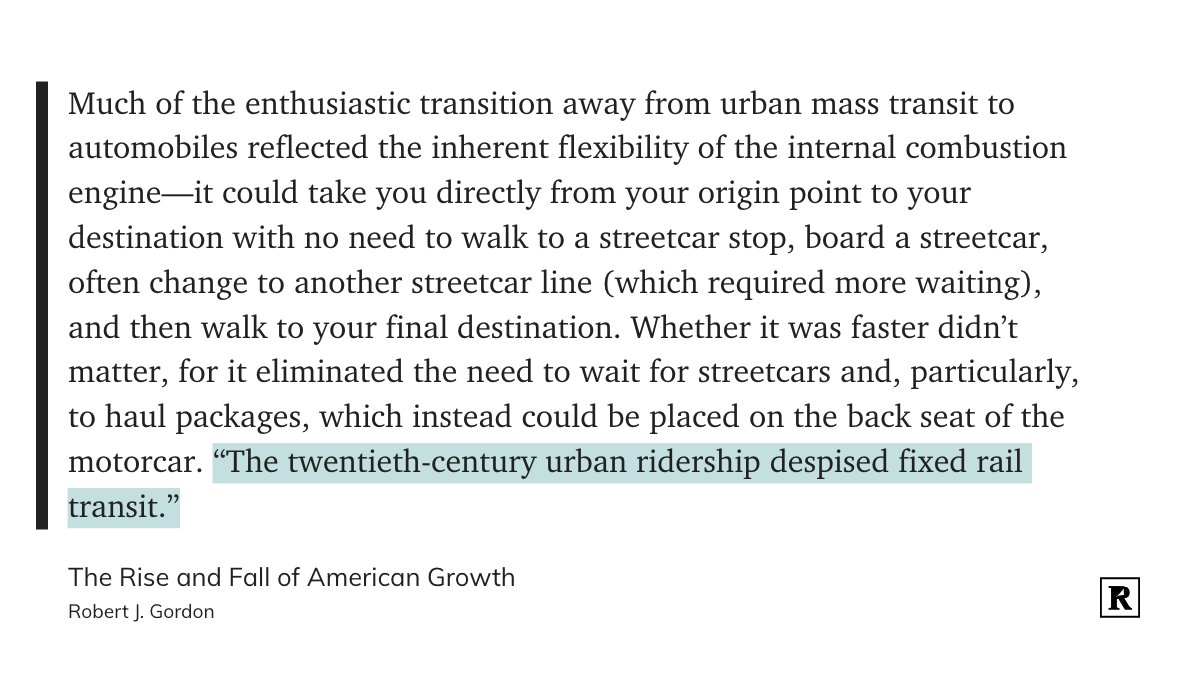
The more I study nuclear technology the more I think that every problem of today's nuclear tech has a potential solution that has already been identified. They just haven't been brought to market, because the market is sclerotic.
The mental gymnastics required to embrace “natural immunity” as a deliberate strategy for anything are mind-boggling. Natural immunity means exactly the thing you want to *avoid*—it means GETTING A DISEASE.

Natural immunity means exactly the thing you want to avoid—it means GETTING A DISEASE.
There are many cases where “<adjective> <noun>” is not in fact a type of <noun> What are your favorites? twitter.com/Noahpinion/sta…
“On the reefs of roast beef and apple pie socialist utopias of every sort are sent to their doom” pic.twitter.com/ZixK3u46Zv
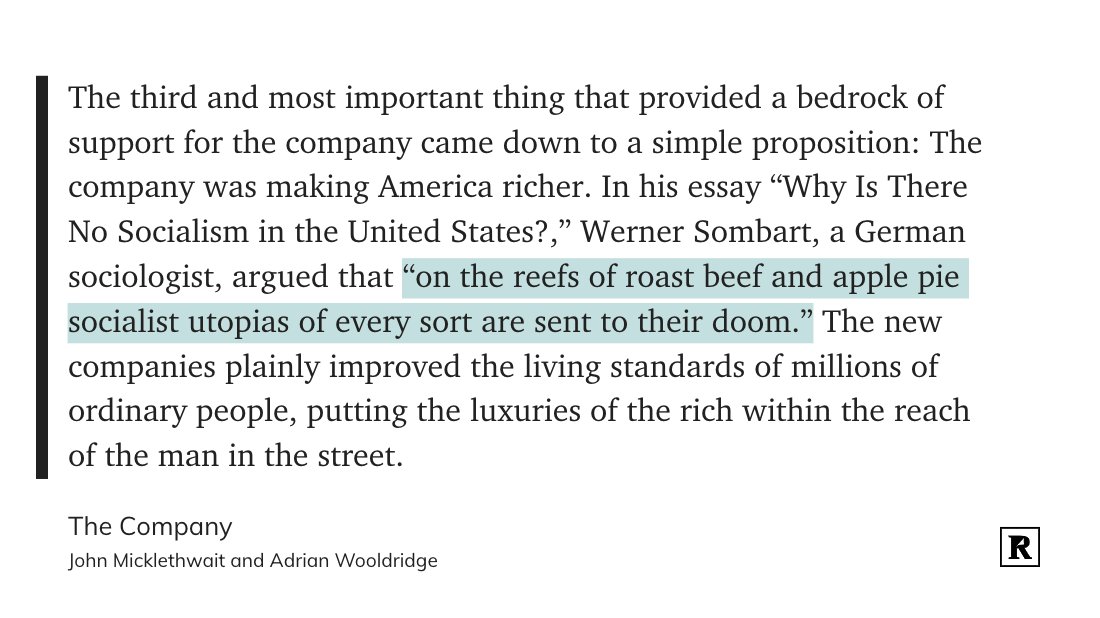
Large cities were considered unsustainable by many, before modern sanitation: pic.twitter.com/ti2f9CbTdR
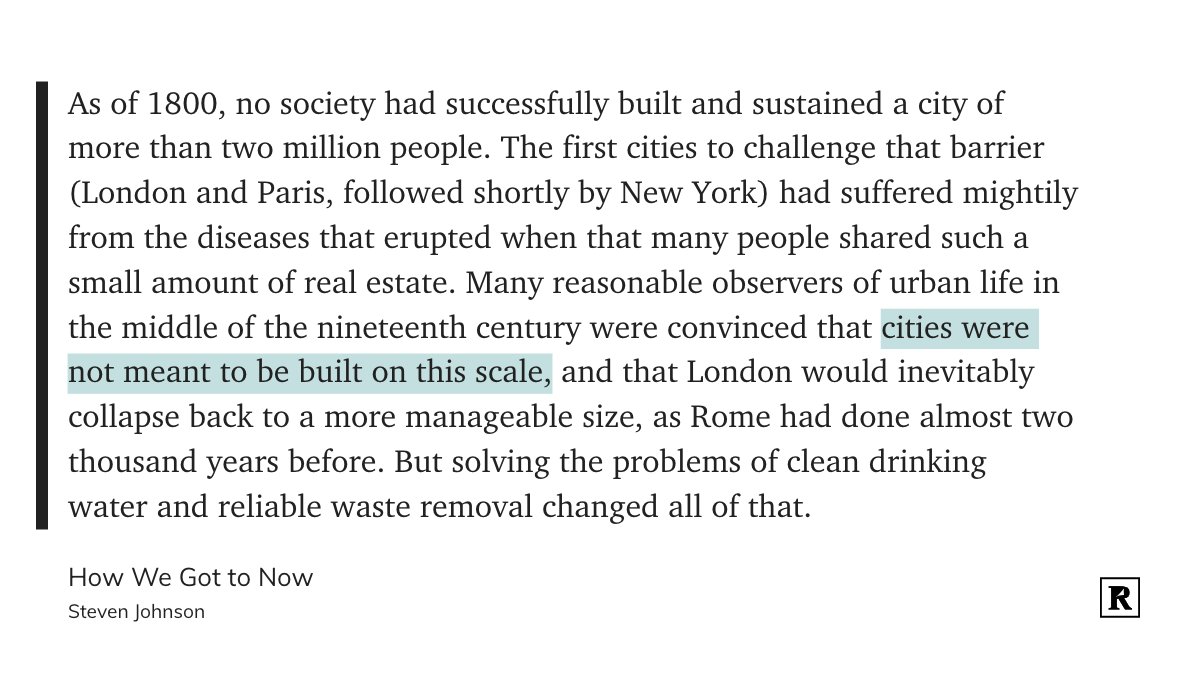
Two deeply opposed worldviews. Are we the central, active agents in our own story, actively rebuilding and improving our environment? Or simply organisms in that environment that need to fit inside it like any other? @CharlesCMann pic.twitter.com/kgbF1Ja1hI
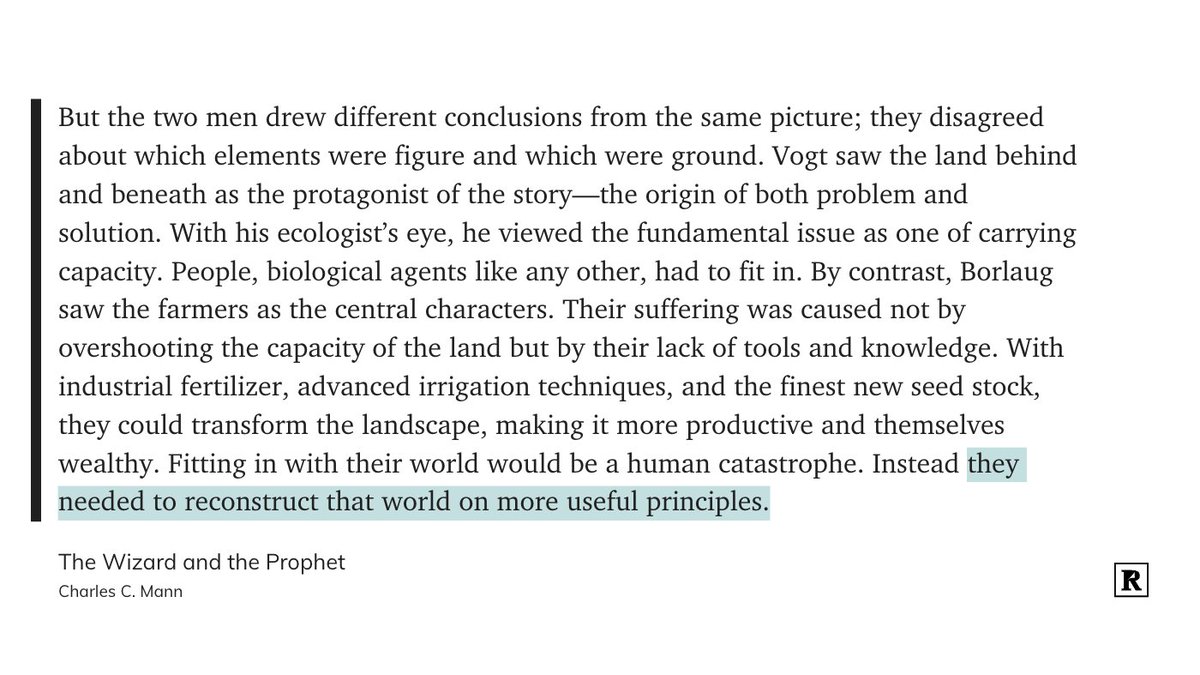

Two deeply opposed worldviews. Are we the central, active agents in our own story, actively rebuilding and improving our environment? Or simply organisms in that environment that need to fit inside it like any other?

The phonograph was invented in the late 1800s, but for decades, recording technology was quite primitive by today's standards: pic.twitter.com/RcVLhkSbKO
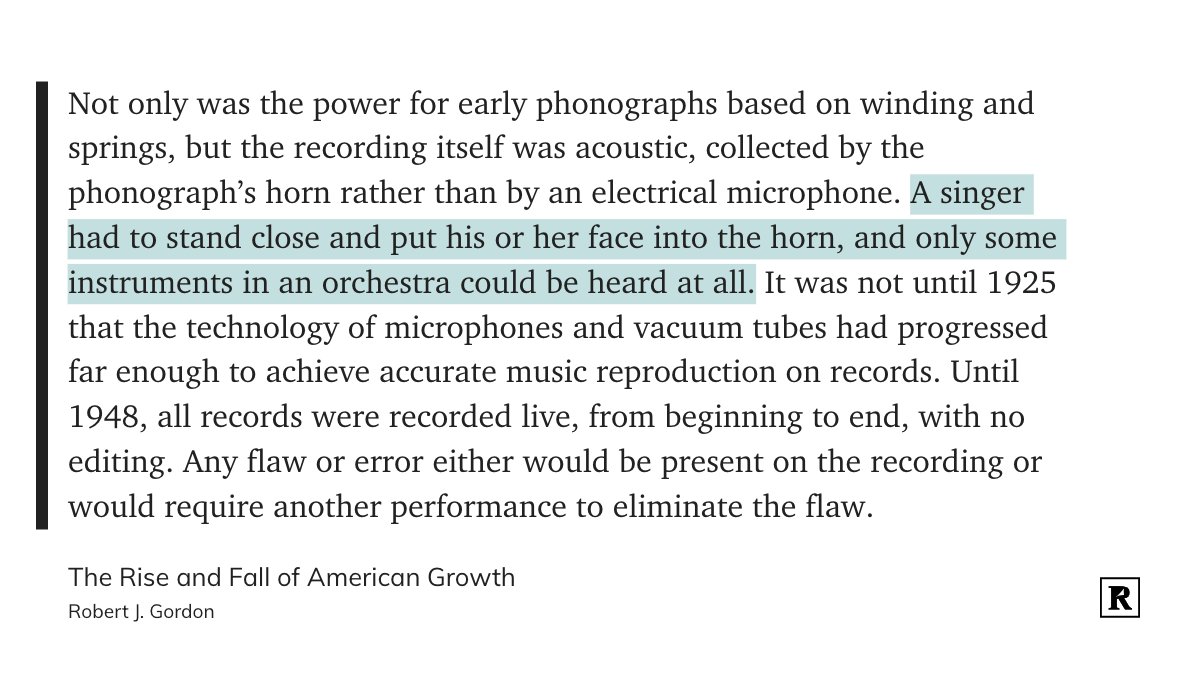

We often ask, why is X so expensive? (housing, pharma…) I suspect the question is backwards. We should ask, how does anything ever get/stay cheap? Everything starts out inefficient, wasteful, and therefore expensive. It takes an intense, dedicated campaign to drive costs down.

We often ask, why is X so expensive? (housing, pharma…) I suspect the question is backwards. We should ask, how does anything ever get/stay cheap?
Ford on Edison: pic.twitter.com/Pf444rXlEd
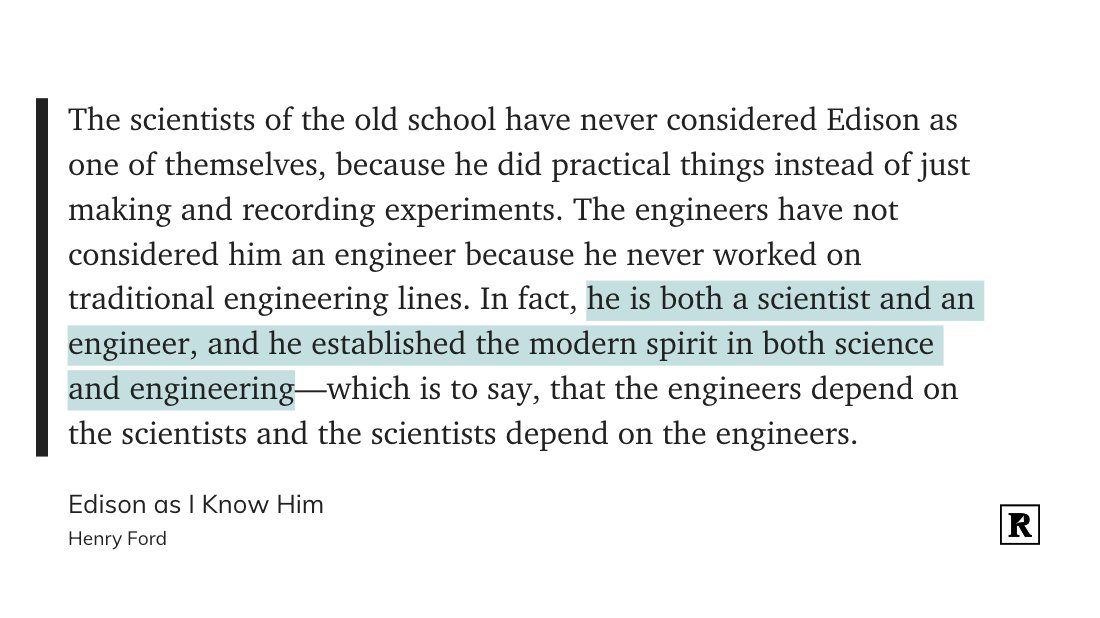

Household entertainment, such as it was, c. 1870: pic.twitter.com/RHGXTxY4pX
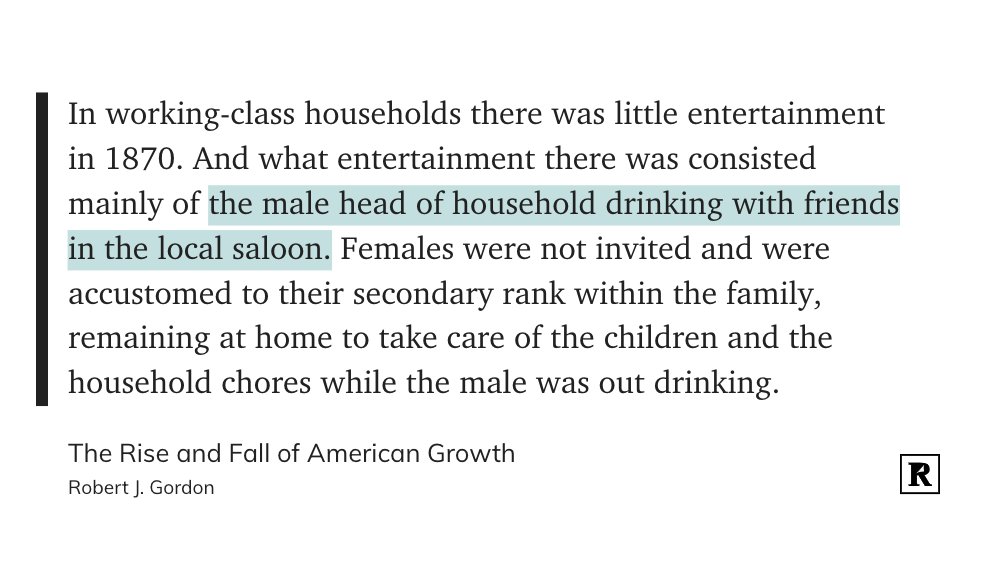

Why innovation is hard: the idea maze is intricate, and you're groping in the dark. Trying topical applications of penicillin to wounds was a totally reasonable idea, but it didn't work. Easy to get discouraged and not realize you are one tweak away from a breakthrough pic.twitter.com/zmYueMaQ8w


The idea maze is intricate, and you're groping in the dark. Trying topical applications of penicillin to wounds was a totally reasonable idea, but it didn't work. Easy to get discouraged and not realize you are one tweak away from a breakthrough

The center of scientific activity shifted many times over the course of a few centuries. It could shift again pic.twitter.com/pwbWVVPrzY
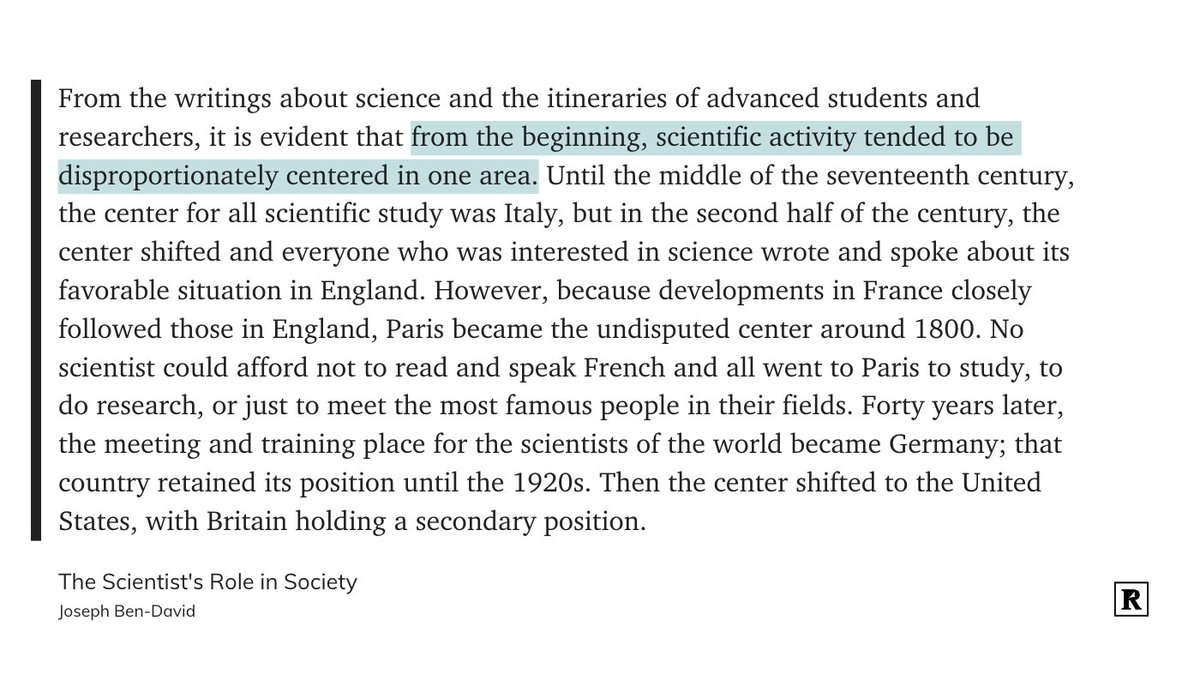

Progress in milking: pic.twitter.com/xpPMSc2fKq
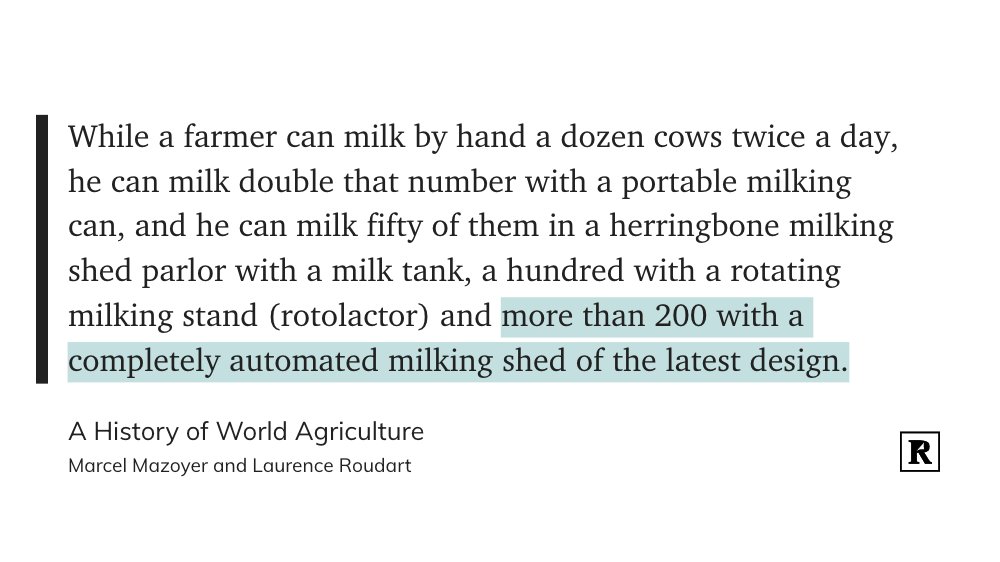

Leaders: to understand team inertia, imagine piloting a vehicle large enough to hold your team. Two co-founders fit on a motorcycle. A team of 4–5 is a sedan. By 20, you're driving a bus. At 2000, it's a battleship. A motorcycle pivots faster than a ship. That's team inertia.

Leaders: to understand team inertia, imagine piloting a vehicle large enough to hold your team.
Two co-founders fit on a motorcycle. A team of 4–5 is a sedan. By 20, you're driving a bus. At 2000, it's a battleship.
The late, great @HansRosling on “living in balance with nature”: pic.twitter.com/vSv6uUmwKS
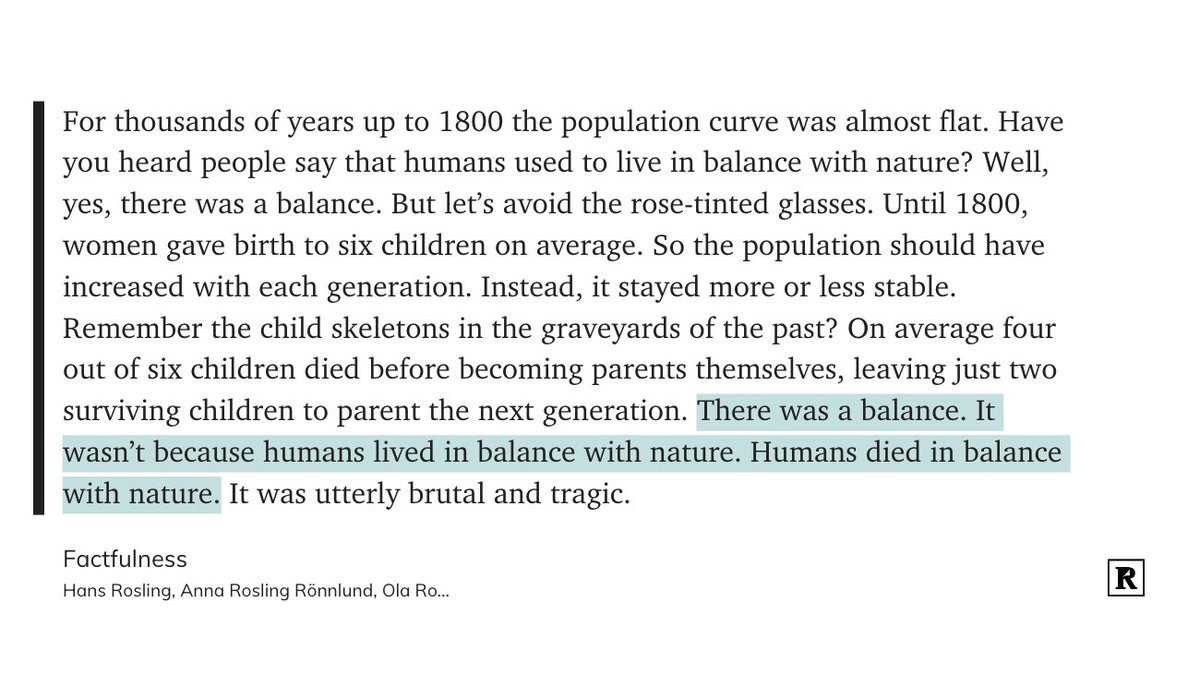

Without industrial literacy, the pre-industrial past seems bucolic. But subsistence farming is nothing like a road trip to go backpacking through a carefully groomed modern state park pic.twitter.com/EfCNmzvYpH
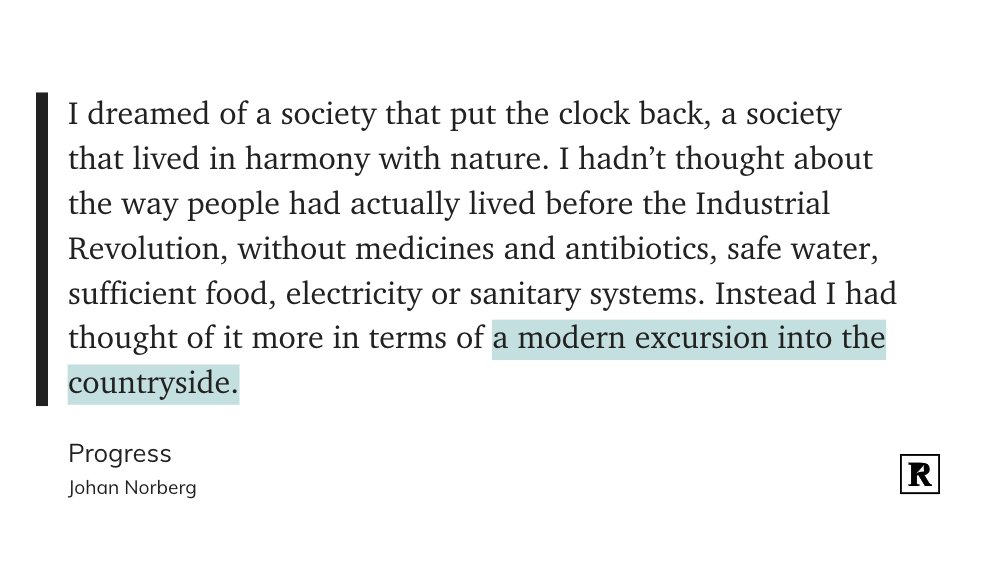
The transition from urban transit to automobiles was “enthusiastic”. “The twentieth-century urban ridership despised fixed rail transit.” pic.twitter.com/OUlCxig4HR
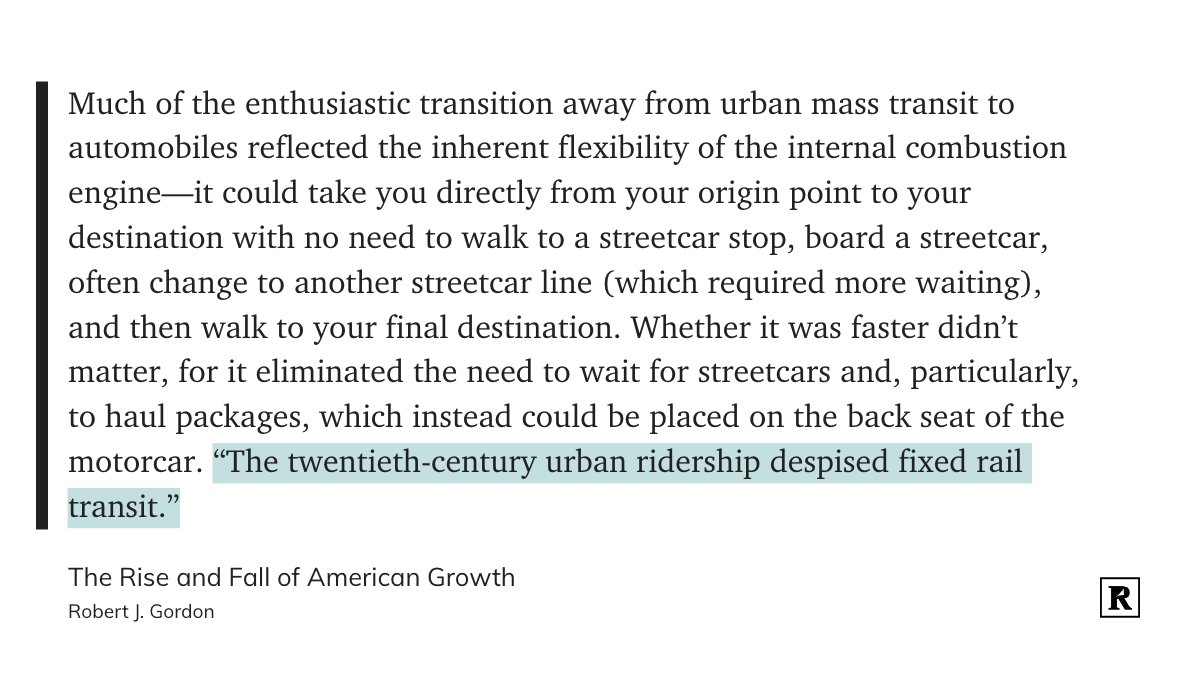
An ode to the jet engine pic.twitter.com/GbhkwXZfSB
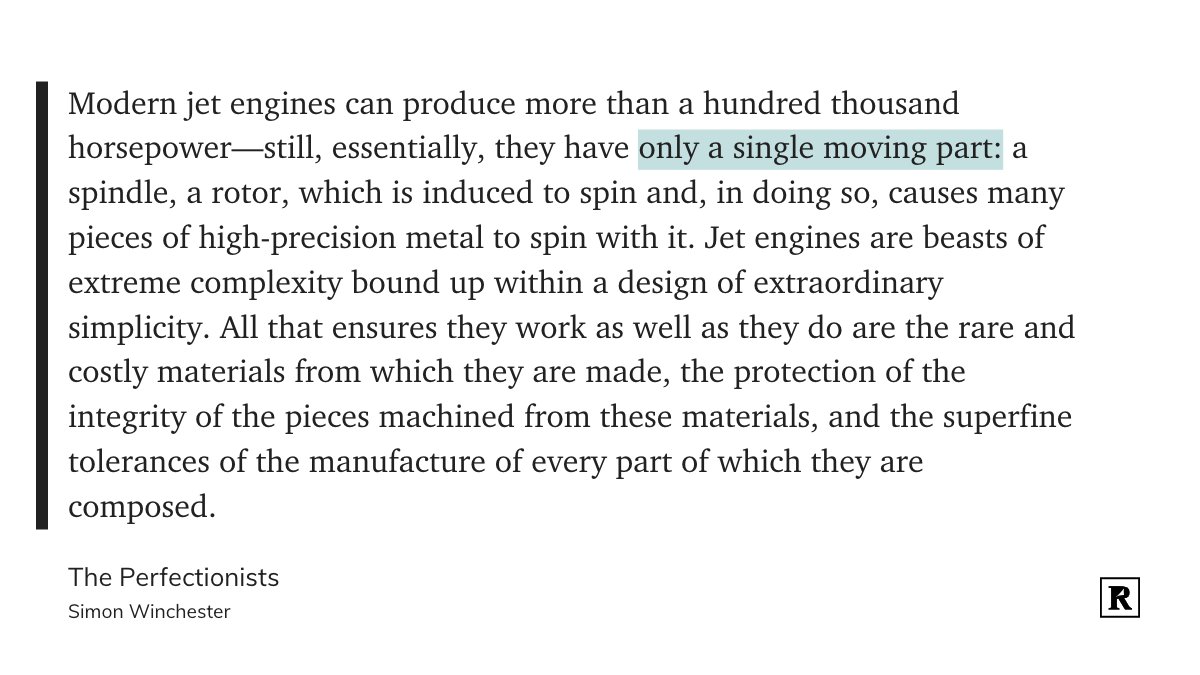
Social status and monetary rewards are *not* substitutes. I see this misconception a lot, often from very smart and rational people.

E.g., “Why are you defending billionaires? They are already rich. They don't need praise also.”
It goes the other way too: Scientists and teachers get a lot of praise, but they should probably also be paid more.
“Science was born when, with the progress of technology, the experimental method eventually overcame the social prejudice against manual labor and was adopted by rationally trained scholars” Edgar Zilsel, “The Sociological Roots of Science” (1942) jstor.org/stable/2769053

“Science was born when, with the progress of technology, the experimental method eventually overcame the social prejudice against manual labor and was adopted by rationally trained scholars”

Job security is much greater today than in the early 20th century and before. Day labor and piece work were gradually replaced with full-time permanent employment. pic.twitter.com/7I5ciw6GTI
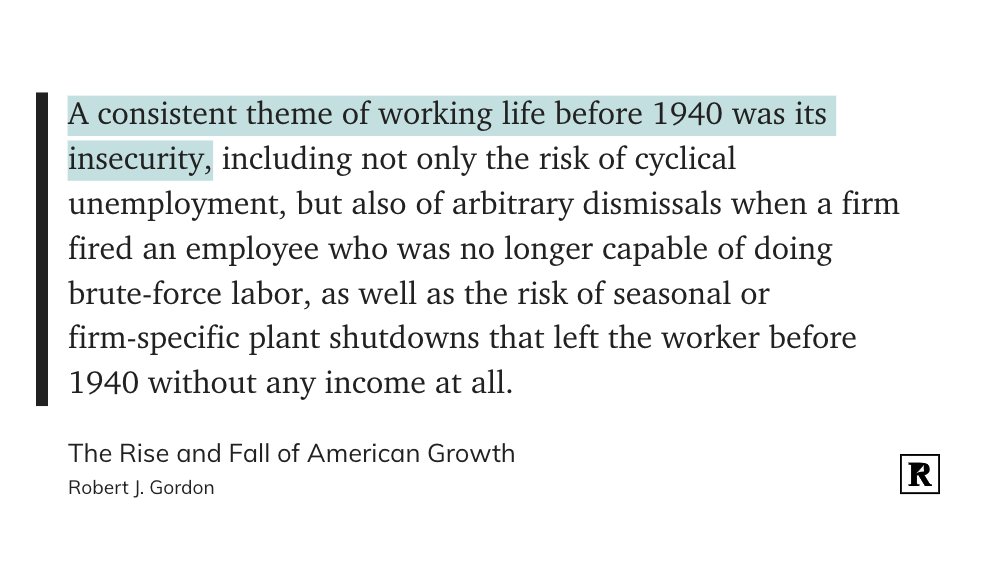

Day labor and piece work were gradually replaced with full-time permanent employment.

I was interviewed on @NuclearTitans with @bkugelma to talk about progress and stagnation in nuclear power and beyond: titansofnuclear.com/experts/JasonC…
Really interesting idea for biosafety. arxiv.org/abs/2108.02678 twitter.com/kesvelt/status…
What, to you, is the most interesting school of thought that you don't agree with?
An underappreciated lesson of covid: How fast the world can mitigate a problem when it becomes the world's *number one problem*.

How fast the world can mitigate a problem when it becomes the world's number one problem
Retirement is a 20th-century invention. The machines *did* take our jobs—they took jobs away from the elderly after retirement, from school-age children, and from everyone else after 5pm and on the weekends. And that's a good thing. pic.twitter.com/fAY76f8UM6
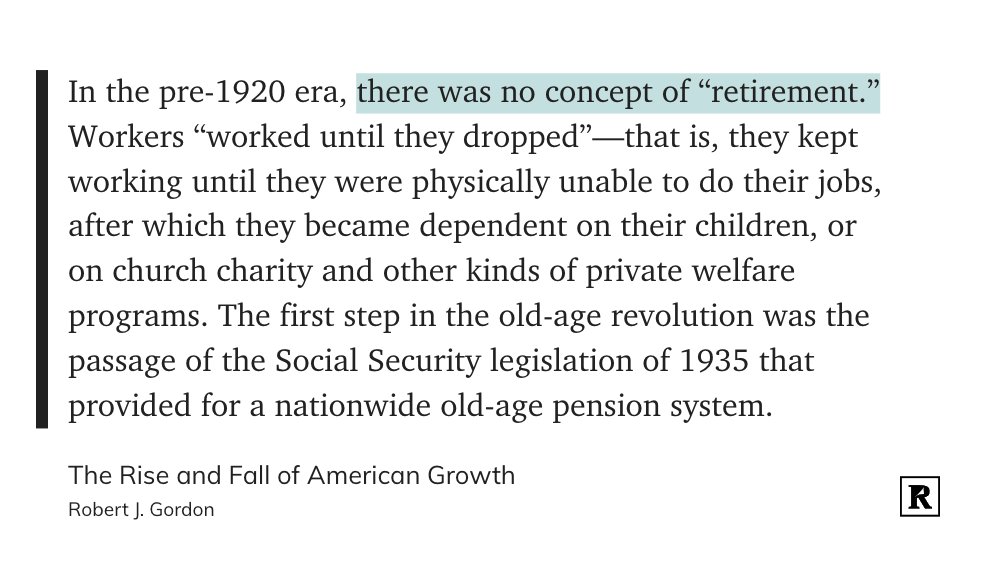

The machines did take our jobs—they took jobs away from the elderly after retirement, from school-age children, and from everyone else after 5pm and on the weekends. And that's a good thing.





























